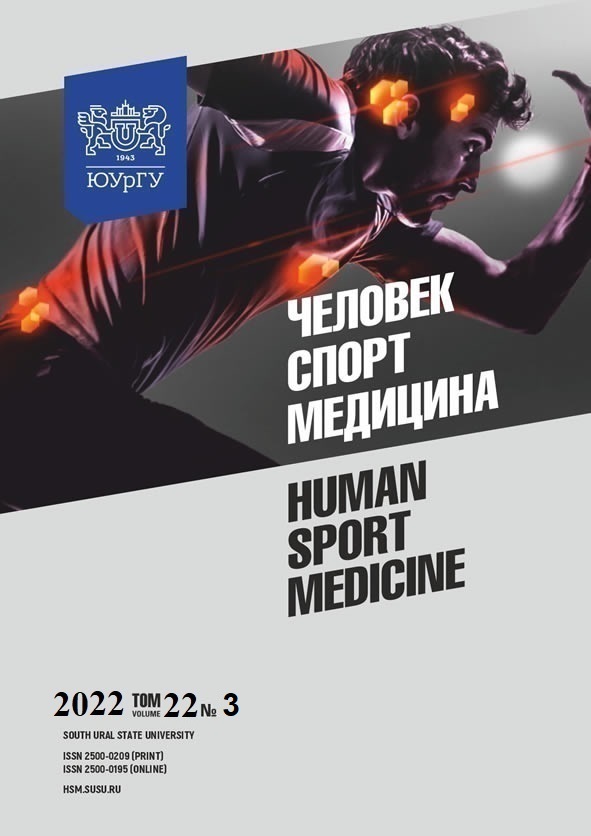THE RELATIONSHIP OF FUNCTIONAL, STRENGTH AND TECHNICAL FITNESS IN ELITE SWIMMERS IN THE 200-METER EVENTS DURING THE TRAINING MACROCYCLE
Abstract
Aim. This study aims to improve the training of middle-distance swimmers by means of a regular and comprehensive analysis of quantitative criteria that define the major components of fitness. Materials and methods. The study involved 4 elite male swimmers in the 200-meter events who had been previously ranked within top 20 swimmers. During the training macrocycle, all subjects underwent regular testing using the same pedagogical, physiological, hydrodynamic, biomechanical, and ergometer test protocols. The data obtained were processed with the methods of mathematical modelling. Results. It was found that during the macrocycle before European Short Course Swimming Championships 2015, the subjects showed a longitudinal shift of the metabolic curve that was evident from the step test protocol (8×200 m). This shift was mostly associated with the character and nature of a training program. The mathematical analysis of swimming velocity during the final stage of the test showed that targeted changes in training volume and intensity, as well as in training content at consecutive stages of the macrocycle were accompanied by the corresponding and sometimes significant changes in the levels of physical and technical fitness. At the tapering stage, for three of the subjects, who successfully performed at European Short Course Swimming Championships 2015 in the 200 m events (freestyle, backstroke and breaststroke), swimming performance criteria fell within the range that was usually characteristic of high performance in the 200 m events. The power of active metabolism was within the range of 2035–2497 W, the coefficient of mechanical efficiency – 0.063–0.072, the coefficient of propelling efficiency – 0.69–0.73. Conclusion. The major factor contributing to successful performance in the main competitive event within the studied macrocycle was the optimal balance of the quantitative performance criteria that was achieved during the tapering stage of training.
References
References on translit
Copyright (c) 2022 Human. Sport. Medicine

This work is licensed under a Creative Commons Attribution-NonCommercial-NoDerivatives 4.0 International License.















